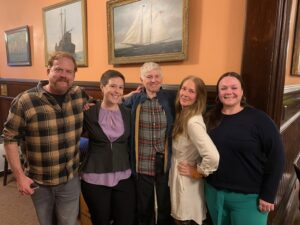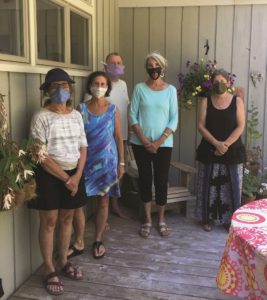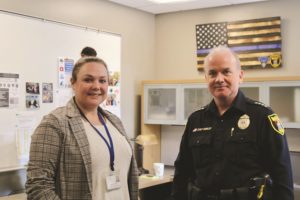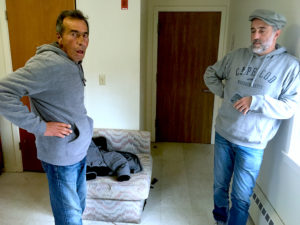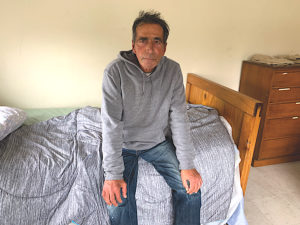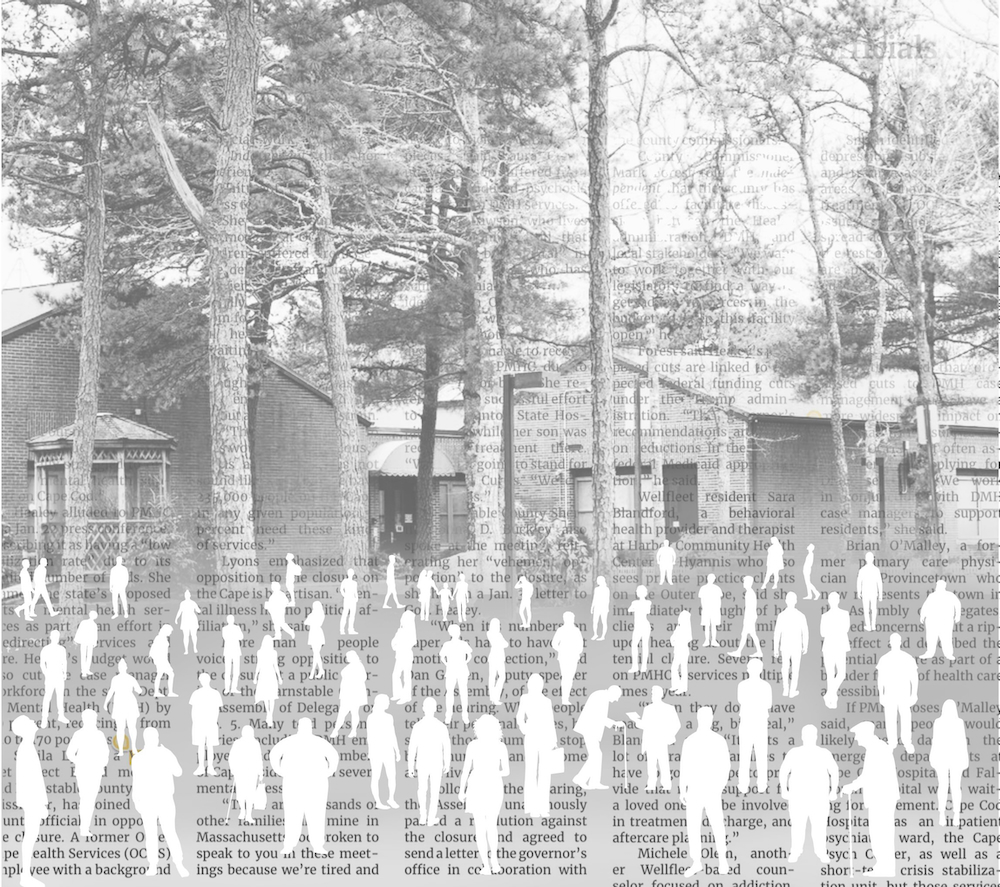
Editor’s note: Because of a production error, the last section of this article did not appear in the print version of the Feb. 13 edition. The full text of the article is below.
WELLFLEET — The select board voted unanimously on Feb. 4 to send a letter to Gov. Maura Healey urging her to remove the proposed closure of the Pocasset Mental Health Center (PMHC) from the state’s recommended fiscal 2026 budget.
The 16-bed PMCH, which is about 55 miles from Wellfleet, is the only state-run inpatient psychiatric facility in Barnstable County. It provides short-term treatment for clients age 19 and older. The board’s letter described PMHC as serving “some of our most disadvantaged constituents who have historically struggled to find quality mental health support on Cape Cod.”
Healey alluded to PMHC in a Jan. 22 press conference, describing it as having a “low utilization rate” due to its limited number of beds. She framed the state’s proposed cuts to mental health services as part of an effort in “redirecting” services and care. Healey’s budget would also cut the case manager workforce in the state Dept. of Mental Health (DMH) by 50 percent, reducing it from 340 to 170 positions.
Sheila Lyons, a Wellfleet Select Board member and Barnstable County commissioner, has joined other county officials in opposing the closure. A former Outer Cape Health Services (OCHS) employee with a background in social work, Lyons told the Independent that her experience reinforced her commitment to preserving access to PMHC.
She recalled supporting two mothers at OCHS whose children suffered from severe depression and needed inpatient care. “One mother literally slept in the child’s room for fear that she would kill herself,” Lyons said. “Waiting for a bed while you think your child could slip through your hands was not only emotionally hard and sad but a real logistical strain.
“The loss of those 16 beds would be tremendous,” Lyons added. “It does not sound like a lot, but we have 235,000 people on the Cape. In any given population, 3 percent need these kinds of services.”
Lyons emphasized that opposition to the closure on the Cape is bipartisan. “Mental illness has no political affiliation,” she said.
More than 50 people voiced strong opposition to the closure at a public hearing of the Barnstable County Assembly of Delegates on Feb. 5. Many told personal stories, including DMH employees and family members of Cape residents with severe mental illness.
“There are thousands of other families like mine in Massachusetts too broken to speak to you in these meetings because we’re tired and trying to pick up our lives in pieces,” said Laura Craciun, whose son suffered from cannabis-induced psychosis and relied on DMH services.
Diane Lawson, who lives in West Dennis, said that PMHC had been “vital” in treating her son, who has schizophrenia. Harwich resident Karen Curtis said her son, who was diagnosed with a psychotic disorder at age 10, was unable to receive treatment at PMHC due to a shortage of beds. She referred to the successful effort to keep Taunton State Hospital open while her son was receiving treatment there. “We’re not going to stand for this,” said Curtis. “We can prevent this.”
Barnstable County Sheriff Donna D. Buckley also spoke at the meeting, reiterating her “vehement opposition” to the closure, as she had in a Jan. 31 letter to Gov. Healey.
“When it’s numbers on paper, it’s hard to have that emotional connection,” said Dan Gessen, deputy speaker of the Assembly, of the effect of the hearing. When people tell their personal stories, he said, “those numbers stop being numbers and become actual lives.”
Following the hearing, the Assembly unanimously passed a resolution against the closure and agreed to send a letter to the governor’s office in collaboration with the county commissioners.
County Commissioner Mark Forest told the Independent that the county has offered to facilitate discussions between the Healey administration, DMH, and local stakeholders. “We want to work together with our legislators to find a way to get added resources in the budget to keep this facility open,” he said.
Forest said Healey’s proposed cuts are linked to expected federal funding cuts under the Trump administration. “The governor’s recommendations are based on reductions in the overall federal Medicaid appropriation,” he said.
Wellfleet resident Sara Blandford, a behavioral health provider and therapist at Harbor Community Health Center in Hyannis who also sees private practice clients on the Outer Cape, said she immediately thought of her clients and their families upon hearing about the potential closure. Several rely on PMHC’s services multiple times a year.
“When they don’t have space, it’s a big, big deal,” Blandford said. “It puts a lot of strain on families to have to go off-Cape to provide that moral support for a loved one and be involved in treatment, discharge, and aftercare planning.”
Michele Olem, another Wellfleet-based counselor focused on addiction, stressed the importance of receiving support from one’s community.
Brianne Smith, behavioral health director at OCHS, said she did not expect the closure to drastically increase demand for outpatient services at OCHS, such as at the A.I.M. Wellness Center in Wellfleet. But she said that any changes in the behavioral and mental health care landscape raise red flags. “It’s going to ripple out and impact people,” she said.
Smith identified anxiety, depression, substance use, and trauma as the primary areas of behavioral health treatment at OCHS. These issues, she said, are widespread across the Cape and the rest of the state. “These are problems, not just in our area, but in community health centers providing behavioral health services throughout the state,” she said.
Smith added that proposed cuts to DMH case management could have a more widespread impact on the Cape than the closure of Pocasset. OCHS staff often assist clients in applying for DMH services. “We work in conjunction with DMH case managers to support residents,” she said.
Brian O’Malley, a former primary care physician in Provincetown who now represents the town in the Assembly of Delegates, echoed concerns about a ripple effect and described the potential closure as part of a broader failure of health care accessibility.
If PMHC closes, O’Malley said, many people would likely spend days in the emergency departments at Cape Cod Hospital and Falmouth Hospital while waiting for placement. Cape Cod Hospital has an inpatient psychiatric ward, the Cape Psych Center, as well as a short-term crisis stabilization unit, but those services are already strained.
“What we’re seeing is a collapse of our health-care system,” he told the Independent. “Everywhere you turn, everywhere you look, there is less availability of services.”
O’Malley also criticized the timing of the proposed cuts in mental health services. “It feels tone deaf on the governor’s part — in the first few weeks of January 2025 with what’s going on in the country — to be closing off mental health access.”
